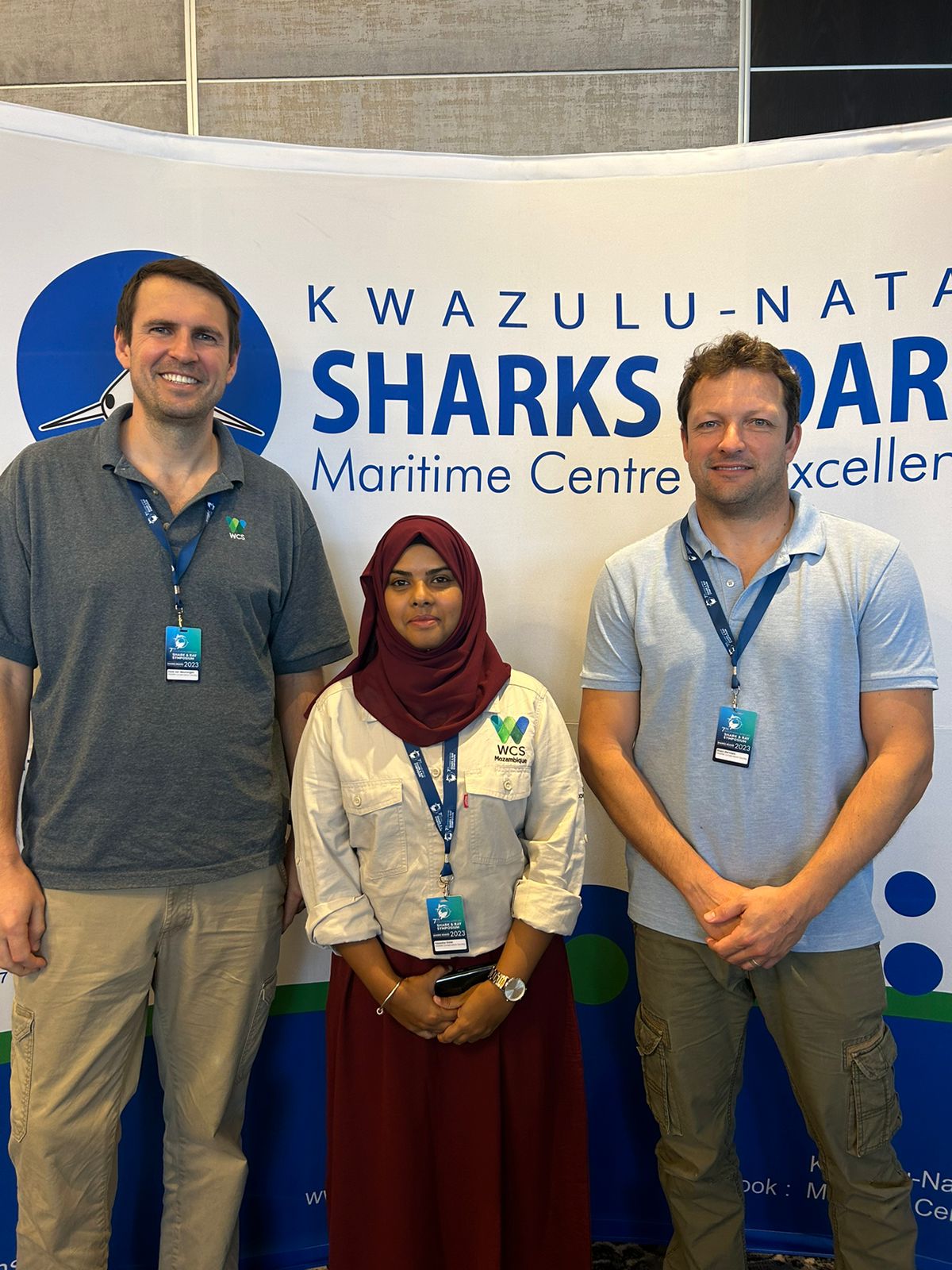The biennial Southern African Shark & Ray Symposium was held in Durban, South Africa, from the 24th to 27th October and brought together around 140 participants from 8 countries.
WCS was represented by three WCS staff members, including two from the Western Indian Ocean shark and ray conservation program and one from the WCS Mozambique Program, who contributed to the symposium with four oral presentations:
- Realities of shark and ray conservation in the Western Indian Ocean: challenges and lessons learned, presented by Rhett Bennett.
- Crossing continental divides, spatiotemporal habitat use of Myliobatis aquila in South Africa and Portugal, a comparative analysis, presented by Rhett Bennett.
- Elasmobranchs in the Western Indian Ocean: insights from baited remote underwater video surveys, presented by Dave van Beuningen.
- Engaging fishing communities in co-designing sustainable management solutions for elasmobranch populations in Zalala Beach, Mozambique, by Naseeba Sidat – winner of the 2nd place for the best presentation and Save Our Seas Foundation (SOSF) Travel Grant Winner Award 2023.

WCS shark and ray team for Mozambique and the WIO region: Dave van Beuningen, Naseeba Sidat and Rhett Bennett
The event provided the team with insights into various themes related to sharks and rays and a workshop on the Acoustic Tracking Array Platform (ATAP) to discuss future activities for collaborative acoustic telemetry studies to assess marine animal movements. The event also facilitated the team's interaction with partners and entities that WCS is already working with, under the WIO shark and ray program, and face-to-face meetings that will now boost the collaboration of the WCS Mozambique team with those entities, including the South African Institute for Aquatic Biology (SAIAB); Department of Genetics at Stellenbosch University (SU); Department of Forestry, Fisheries, and the Environment (DFFE) of South Africa; TRAFFIC East/Southern Africa; Oceanographic Research Institute (ORI), South Africa; Marine Megafauna Foundation (MMF); and Rhodes University.